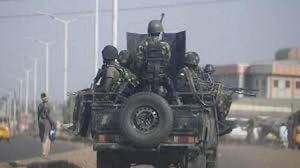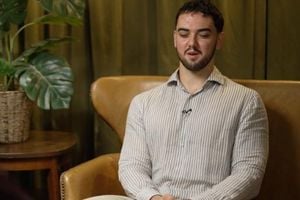On August 15, 2025, El Salvador’s Legislative Assembly took a controversial step that’s reverberating far beyond the country’s borders: lawmakers approved a reform allowing tens of thousands of suspected gang members to be detained without trial until at least 2027. The measure, which extends the state of emergency declared by President Nayib Bukele in 2022, was passed just days before a two-year deadline for filing charges against detainees was set to expire. For many Salvadorans, it’s a move that underscores the country’s ongoing battle with powerful gangs—but for critics, it’s a troubling sign of growing authoritarianism and disregard for basic rights.
Since Bukele’s crackdown began, more than 80,000 Salvadorans have been swept up in mass arrests under emergency rules that allow authorities to detain individuals without warrants. The government’s rationale? Every one of those detained is accused of being a gang member, with the most notorious groups—Barrio 18 and Mara Salvatrucha (MS-13)—named as primary targets. Yet, as AFP reports, the evidence is often scant, and due process has taken a back seat to expediency.
The newly approved reform specifically grants the Attorney General’s office a maximum of 24 months to bring charges against those accused of organized crime, with the option to extend that period by another 12 months. In other words, some detainees could remain behind bars for three years before ever seeing a courtroom. If prosecutors fail to file charges within that time, a judge may dismiss the case. The law also stipulates that mass trials will remain open if new defendants are added to the case, but if no new defendants join within two years, the judge may finally issue a ruling.
Attorney General Rodolfo Delgado, speaking to a congressional security committee on August 14, outlined the government’s ambitious plan: around 300 prosecutors will present evidence in approximately 600 mass trials, grouping defendants by gang affiliation, geographic area, or alleged crime. "Approximately 300 prosecutors will be responsible for presenting evidence before appropriate courts in the approximately 600 trials that need to be initiated," Delgado explained, according to AFP. The trials are expected to be divided among the main gangs, and the scale of the undertaking is unprecedented in the country’s history.
But the rush to secure legal cover for the ongoing detentions has not silenced opposition voices—far from it. Inside the Legislative Assembly, opposition lawmaker Francisco Lira issued a stark warning: "I do not defend gangs, criminals, nor extortionists (but) if there are innocent people, they are being sentenced to spend more time in prison" due to the delays. Lira estimated that as many as 40 percent of those detained could be innocent, a claim echoed by human rights activists who have repeatedly sounded the alarm about arbitrary arrests and a lack of due process.
Lawyer and human rights activist Ingrid Escobar, quoted by AFP, didn’t mince words: "The innocent will pay for the guilty," she said, adding, "Even dead people will be convicted." Her remarks reflect a widespread fear among families of detainees and legal experts alike that the mass trial system, as designed, simply cannot review individual evidence or ensure fair hearings. Luis Tapia, a lawyer and researcher at the US-based Due Process of Law Foundation, argued that mass trials make it "impossible to review individual evidence to prepare a defense, which is a basic guarantee of due process."
The scale of the detentions is staggering. Human rights groups estimate that about 15,000 of those arrested are being held at the notorious CECOT mega-prison, a maximum-security facility that has become a symbol of Bukele’s hardline approach. In a move that drew international attention, President Bukele recently began housing migrants deported from the United States—many from the mass deportation drive led by US President Donald Trump—in CECOT as well. Reports of mistreatment inside the prison have surfaced, further fueling criticism from rights advocates.
On the streets of San Salvador, the tension is palpable. On August 15, as lawmakers debated the reform, about 200 protesters gathered in the capital, marching past both the Legislative Assembly and the Supreme Court. Their message was direct: they called the state of emergency “unconstitutional” and demanded justice for those detained. Chants of "They took them alive, we want them back alive!" echoed through the city, a reminder of the deep divisions the crackdown has wrought.
Yet, despite the outcry from opposition lawmakers, human rights defenders, and international organizations, President Bukele remains one of the world’s most popular leaders domestically. His supporters credit him with restoring a sense of security to a country long plagued by gang violence. In fact, a recent US State Department report, cited by AFP, noted a "historic low" in crime and stated there were "no credible reports of significant human rights abuses" in El Salvador. That assessment stands in stark contrast to the accounts of local activists and families of detainees, who describe a climate of fear and impunity.
The Legislative Assembly’s decision to extend detention without trial was hardly surprising, given the dominance of Bukele’s party within the chamber. Out of 60 seats, 57 are held by his party, meaning opposition voices are routinely outvoted. Opposition lawmaker Claudia Ortiz was blunt in her assessment, calling the reforms "a reflection of the lack of capacity possessed by the institutions that are supposed to administer justice in our country." She added, "Because in more than two years they have not done what they are supposed to do... which is fully investigate the facts."
For those caught up in the crackdown, the future is uncertain. The government’s plan to group defendants into massive cases—sometimes involving hundreds or even thousands of accused individuals—raises serious questions about the ability of the justice system to deliver fair outcomes. As the reforms make clear, the mass trials can remain open indefinitely if new defendants are added, potentially prolonging legal limbo for years. If, after three years, prosecutors have not filed an indictment, the judge may finally dismiss the case, but for many, that’s cold comfort after years behind bars.
The government, for its part, insists the measures are necessary to dismantle the gangs that have terrorized El Salvador for decades. But as the country embarks on this unprecedented experiment in mass justice, the world is watching closely. Will the reforms bring lasting peace, or will they deepen the wounds of a society already scarred by violence and mistrust? Only time will tell, but for the tens of thousands still waiting for their day in court, the clock is ticking slowly indeed.



